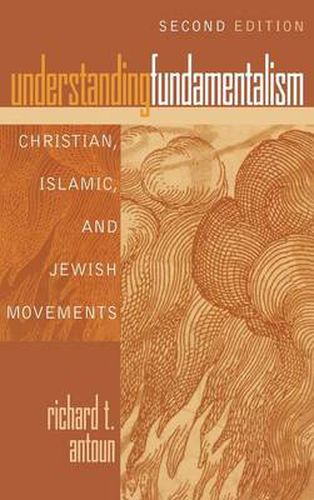Readings Newsletter
Become a Readings Member to make your shopping experience even easier.
Sign in or sign up for free!
You’re not far away from qualifying for FREE standard shipping within Australia
You’ve qualified for FREE standard shipping within Australia
The cart is loading…






The second edition of Understanding Fundamentalism provides a compelling and up to date picture of religious reactions against the modern secular world. Comparing Christian, Islamic, and Jewish fundamentalist movements, anthropologist Richard Antoun shows how all three share common characteristics. In each tradition, fundamentalists seek purity in an impure world, attempt to make the ancient past relevant to their contemporary situation, look to move religion out of the worship center and into every aspect of life, and actively struggle against the aspects of the modern world they regard as evil. The new edition addresses fundamentalism in the post-9/11 world, transnational religion, and the impact of religious migration on Afghanistan and Western Europe. A glossary and Antoun’s readable style make the concepts readily accessible for beginning students. For classes in religious studies, anthropology, or sociology of religion, Understanding Fundamentalism brings a balanced introduction to these often-misunderstood religious activists.
$9.00 standard shipping within Australia
FREE standard shipping within Australia for orders over $100.00
Express & International shipping calculated at checkout
The second edition of Understanding Fundamentalism provides a compelling and up to date picture of religious reactions against the modern secular world. Comparing Christian, Islamic, and Jewish fundamentalist movements, anthropologist Richard Antoun shows how all three share common characteristics. In each tradition, fundamentalists seek purity in an impure world, attempt to make the ancient past relevant to their contemporary situation, look to move religion out of the worship center and into every aspect of life, and actively struggle against the aspects of the modern world they regard as evil. The new edition addresses fundamentalism in the post-9/11 world, transnational religion, and the impact of religious migration on Afghanistan and Western Europe. A glossary and Antoun’s readable style make the concepts readily accessible for beginning students. For classes in religious studies, anthropology, or sociology of religion, Understanding Fundamentalism brings a balanced introduction to these often-misunderstood religious activists.